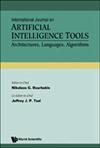REST服务的带注释OpenAPI描述和本体
IF 1
4区 计算机科学
Q4 COMPUTER SCIENCE, ARTIFICIAL INTELLIGENCE
International Journal on Artificial Intelligence Tools
Pub Date : 2022-12-17
DOI:10.1142/s0218213023500173
引用次数: 1
摘要
Web服务由各种软件供应商发布在Web上的服务注册中心中,以便在应用程序中轻松发现和重用。语义Web愿景提供了统一Web服务世界的技术手段,并建议将服务表示为可在Web上访问的语义对象。利用基于超媒体构建Web API(即Hydra)的最新结果和OpenAPI规范的最新更新,我们提出了REST服务的参考本体,以及将OpenAPI服务描述转换为该本体实例的正式过程。该方法的核心是一个增强Schema属性含义的模型(即,通常用于澄清服务组件含义的可重用JSONSchema属性)。对模式属性进行语义注释(即,将其含义映射到语义模型),或者将现有属性组合起来形成复杂的组合或多态表达式。实现了将服务描述映射到OpenAPI本体的完整算法,并可作为Web应用程序进行测试。本文章由计算机程序翻译,如有差异,请以英文原文为准。
Annotated OpenAPI Descriptions and Ontology for REST Services
Web services are published in service registries on the Web by various software vendors to be easily discovered and re-used in applications. The Semantic Web vision provides the technology means for unifying the world of Web services and suggests representing the services as semantic objects accessible on the Web. Leveraging the latest results for hypermedia-based construction of Web APIs (i.e. Hydra) and the newest update of the OpenAPI specification, we propose a reference ontology for REST services along with a formal procedure for converting OpenAPI service descriptions to instances of this ontology. At the heart of the approach is a model for enhancing the meaning of Schema properties (i.e. re-usable JSON Schema properties commonly used to clarify the meaning of service components). Schema properties are semantically annotated (i.e. their meaning is mapped to a semantic model) or, existing properties are combined to form complex composed or polymorphic expressions. The complete algorithm for mapping service descriptions to the OpenAPI ontology is implemented and is available as a Web Application for testing.
求助全文
通过发布文献求助,成功后即可免费获取论文全文。
去求助
来源期刊

International Journal on Artificial Intelligence Tools
工程技术-计算机:跨学科应用
CiteScore
2.10
自引率
9.10%
发文量
66
审稿时长
8.5 months
期刊介绍:
The International Journal on Artificial Intelligence Tools (IJAIT) provides an interdisciplinary forum in which AI scientists and professionals can share their research results and report new advances on AI tools or tools that use AI. Tools refer to architectures, languages or algorithms, which constitute the means connecting theory with applications. So, IJAIT is a medium for promoting general and/or special purpose tools, which are very important for the evolution of science and manipulation of knowledge. IJAIT can also be used as a test ground for new AI tools.
Topics covered by IJAIT include but are not limited to: AI in Bioinformatics, AI for Service Engineering, AI for Software Engineering, AI for Ubiquitous Computing, AI for Web Intelligence Applications, AI Parallel Processing Tools (hardware/software), AI Programming Languages, AI Tools for CAD and VLSI Analysis/Design/Testing, AI Tools for Computer Vision and Speech Understanding, AI Tools for Multimedia, Cognitive Informatics, Data Mining and Machine Learning Tools, Heuristic and AI Planning Strategies and Tools, Image Understanding, Integrated/Hybrid AI Approaches, Intelligent System Architectures, Knowledge-Based/Expert Systems, Knowledge Management and Processing Tools, Knowledge Representation Languages, Natural Language Understanding, Neural Networks for AI, Object-Oriented Programming for AI, Reasoning and Evolution of Knowledge Bases, Self-Healing and Autonomous Systems, and Software Engineering for AI.
 求助内容:
求助内容: 应助结果提醒方式:
应助结果提醒方式:


